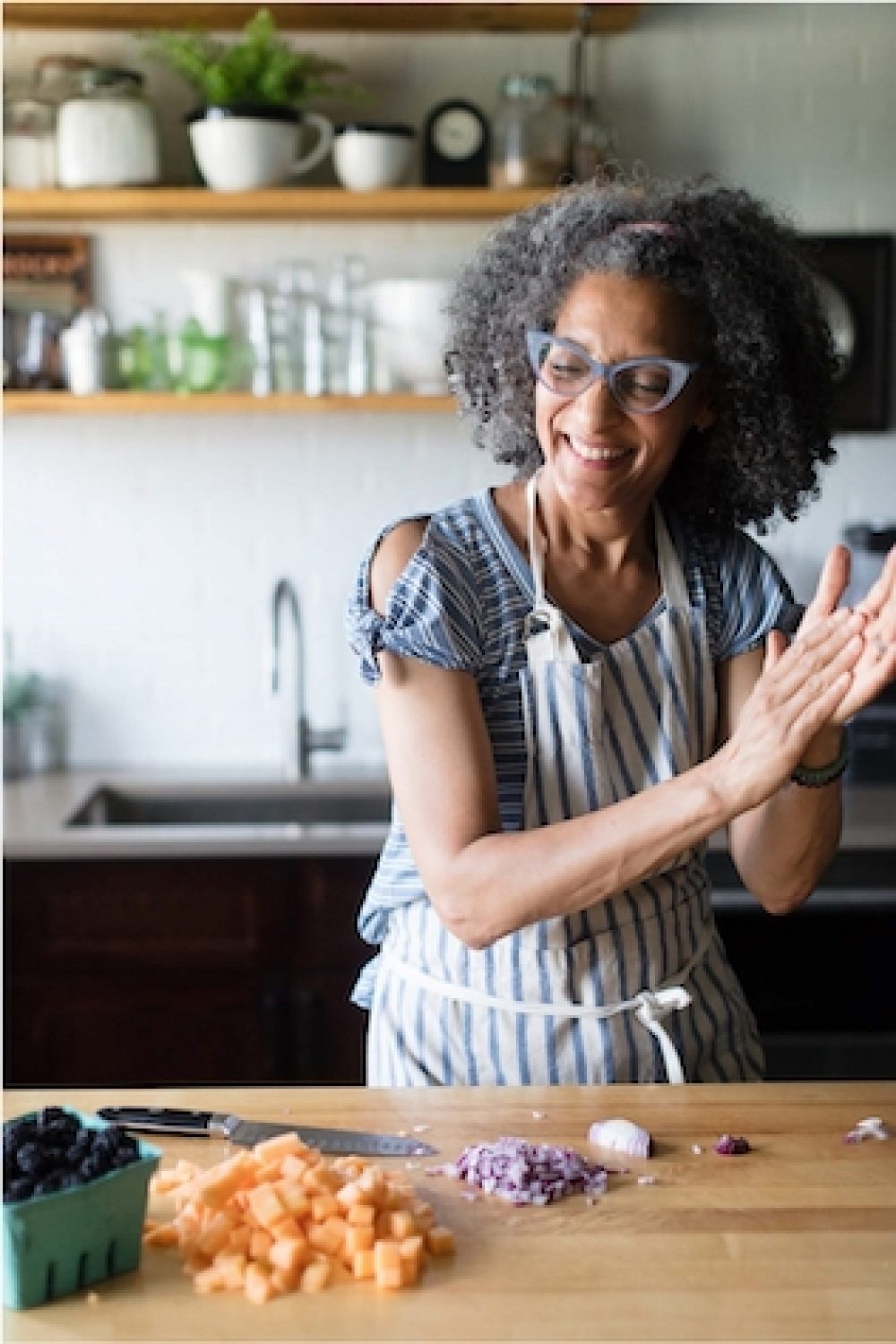Growing up, Carla Hall ate vegetables from her grandmother’s garden, pork didn’t appear in every dish and not everything was fried. That’s the everyday soul food that the chef, author and former co-host on The Chew wants more people to pay attention to.
Listen to this week’s episode of Milk Street Radio to hear Hall talk about celebration foods like fried chicken versus everyday fare like the vegetable-centric dishes she grew up eating. She also picks a bone with tasteless watermelon, grown from our culture of convenience, and explains how mac and cheese became soul food. Check out excerpts from her interview below and listen to the full discussion here on Milk Street Radio.
On moving to Paris to model
I met these girls who were going to Paris to participate in the ready-to-wear fashion season, and I said, you know what? I think I’m going to do that too. I had one telephone number and 10 words of French in my back pocket—my way way back pocket—and I just sort of headed to Paris, as one would do. Eventually I found work. But I also found food.
On everyday soul food
When I think about my grandmother’s garden, she was growing her own collards, green beans and all of these vegetables. We didn’t have pork in everything. She didn’t fry every single vegetable. So it was a lighter version of what people consider soul food. I consider those everyday dishes.
On our culture of convenience
I think we can look at a lot of things today and flavor has sort of fallen by the wayside for the convenience of the consumer.
On the history of mac and cheese
James Hemings was Thomas Jefferson’s chef. Jefferson took Hemings to Paris, where he was trained, and brought him back to the States, where he ended up working—I mean he was a slave, but working—at Monticello. Jefferson loved pasta, so Hemings made this dish that he had in France with a very simple béchamel. It didn’t have the cheese sauce that we know today, but that was the genesis of it. When you think about macaroni and cheese, nothing about it screams African diaspora. But because we were cooks, we were cooking for other people and their food became our food.
On pickling
I am a pickle addict. If you look in my fridge right now, you will see condiments and pickles and at least five quarts of chow chow. For pickled red onions, take a brine of vinegar and water and some aromatics, salt and a little bit of sugar. Pour it over the onions. Then put it in the refrigerator and a couple days later you have these beautiful pickles. The longer they sit, the better they get.
On reclaiming soul food
I’m hoping that people learn that our food is more than the 20 percent that we focus on, which has become a caricature of itself. I’m hoping people realize that eating our food and making our food is a way to preserve our culture.
This interview has been edited for clarity.
Join the conversation on Facebook, Twitter, Instagram and Pinterest.
Stay up to date on free recipes, new radio episodes, classes, events and more with our newsletter. Sign up here.




